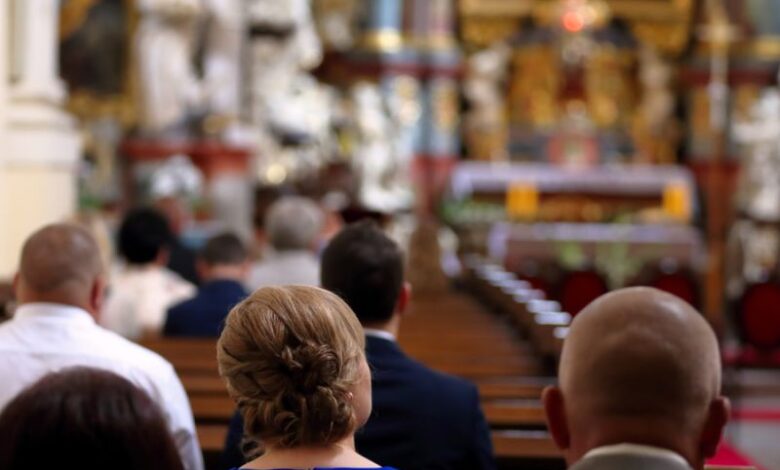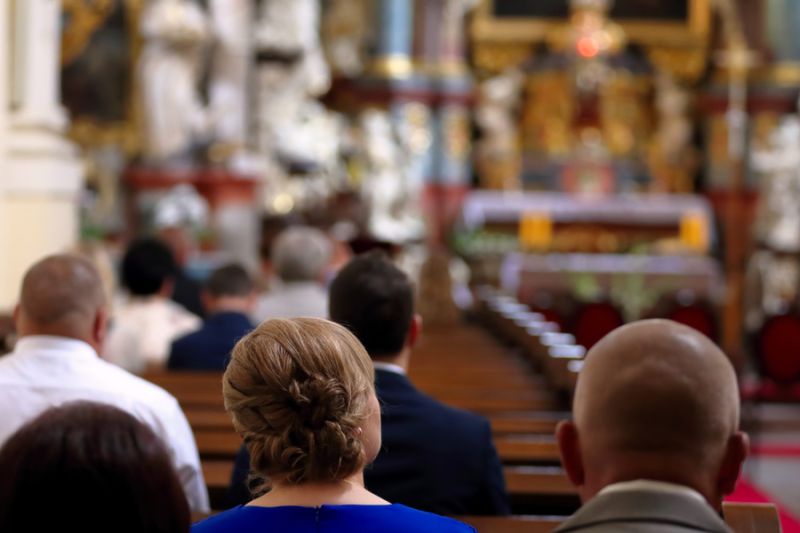Generation Xers’ church attendance drops to millennial levels, survey suggests

 People sitting in pews in church. Stock photo via Shutterstock. / null
People sitting in pews in church. Stock photo via Shutterstock. / null St. Louis, Mo., Aug 3, 2023 / 13:30 pm (CNA).
Church attendance has dropped off since the pandemic for Generation X more sharply than for other age groups, according to a new survey.
The survey of 2,000 adults conducted by the Cultural Research Center at Arizona Christian University found that the percentage of people ages 39 to 57 who attended a worship service during the week, either in person or online, fell to 28% in 2023, down from 41% in 2020, the Wall Street Journal reported this week. Gen Xers saw the largest percentage drop among the age groups surveyed.
The percentage of Gen Xers who worship weekly is now as low as among millennials, at 28%, the survey posits. In fact, the oft-maligned millennial generation experienced during the pandemic the least amount of change in their perspectives about the Christian faith and their participation in biblical practice, the researchers assert.
In contrast, “no generation endured greater spiritual turbulence than Gen X during the pandemic,” said George Barna, director of research at the Cultural Research Center.
“Among the biggest changes in their religious perspective were declines in believing God created humans, that he is the basis of truth, and that he is the omniscient and omnipotent ruler of the universe. Those doubts have precipitated important transitions in religious behavior, including less frequent Bible reading, church attendance, confession of personal sin, seeking to do God’s will, and worshipping God,” the report says.
Among baby boomers, the results of this survey suggest a slight upward trend in church attendance in the past three years, the only age group for which this was true. Participation among the elderly fell only slightly.
Experts cited by the WSJ said many people in their 40s and 50s were raised in a church and did not seriously question their faith practice until the pandemic. In addition, parents often attend places of worship to get their kids through certain religious milestones, after which their participation begins to wane. A few experts described the drop in church participation as a form of “quiet quitting,” with attendees lacking a deep participation to the point of stopping attending and donating while remaining, officially, on membership rolls.
Overall, fewer Americans are going to church than they did before the start of the COVID-19 pandemic and lockdowns, according to a Gallup poll released June 26. Despite a slight uptick, the poll found that attendance was still three percentage points lower than the 34% attendance rate found in 2019, the year before the COVID-19 pandemic began.
Post-pandemic church attendance rates declined more sharply among Catholics than it did among Protestants. The 2016-2019 average among Catholics was 37%, compared with a 2020-2023 average of only 30%. Protestants in the same time frame fell from 44% to 40%.
The polls suggest that church attendance overall has generally been on the decline since 2009, when 42% of respondents said they had attended a service in the past week. After 2009, attendance rates have mostly been in the 30s, with only two exceptions: 40% attendance in 2012 and 29% attendance in 2021.
Church attendance was at its height in the mid- to late-1950s. The highest points were 49% in 1955 and 49% again in 1958. Gallup’s data goes back to 1939, but it did not conduct regular annual polls until the late 1980s.
Other data suggest that religious affiliation — which was already 20% lower overall in 2020 compared with 1999 — remains largely unchanged since the pandemic, despite many people stopping attending church services, suggesting that people are largely rejecting institutional churches rather than the faith itself.





